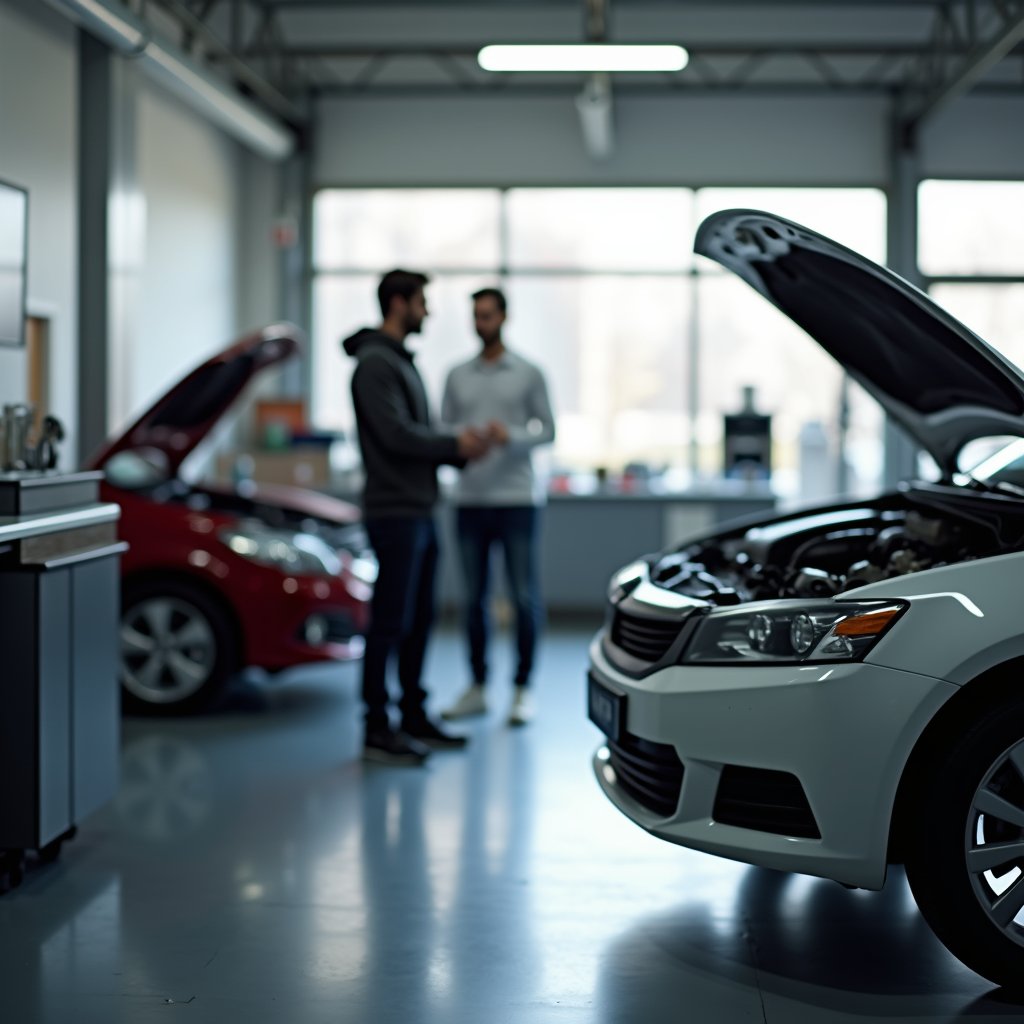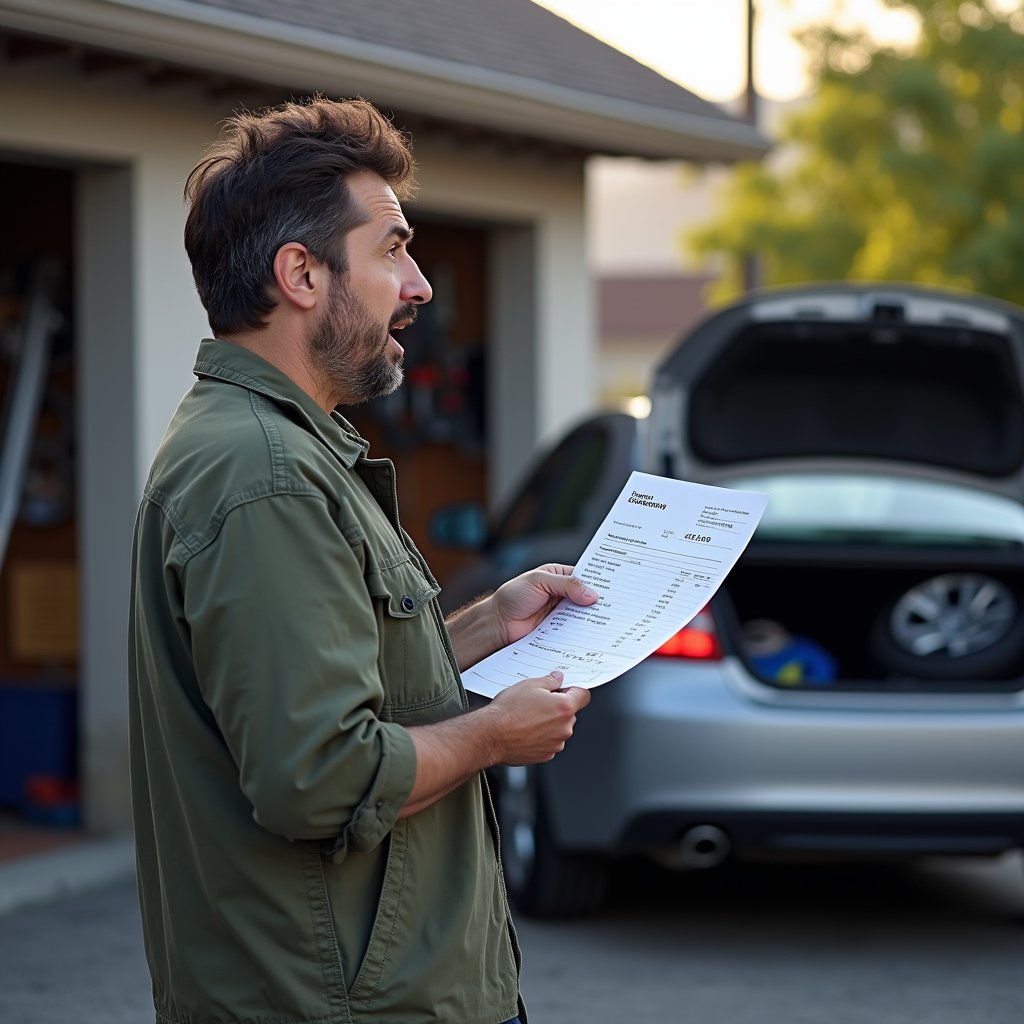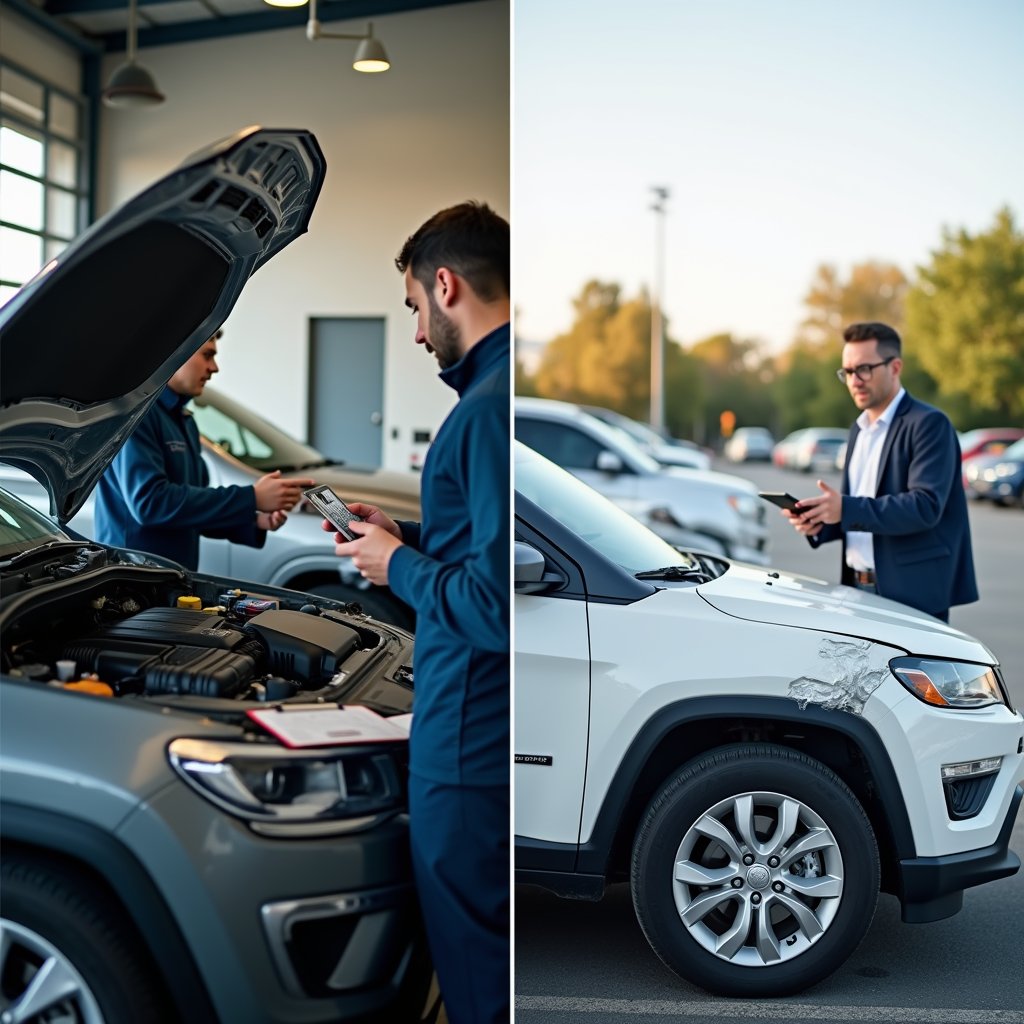Car insurance covers repairs only when they result from covered incidents like accidents, theft, or weather damage. Your collision coverage handles accident repairs regardless of fault, while extensive covers non-collision events. However, mechanical failures, routine maintenance, and wear-and-tear issues aren’t covered by standard policies. For those repairs, you’ll need Mechanical Breakdown Insurance or extended warranties. Understanding exactly what your policy includes can save you from unexpected repair costs down the road.
Standard Insurance Policies and Vehicle Repair Coverage

Standard insurance policies for vehicles typically offer multi-layered protection that varies considerably in repair coverage scope. Your collision coverage handles repairs from accidents regardless of fault, while comprehensive coverage addresses non-collision incidents like theft, vandalism, and weather damage.
Significantly, animal collisions fall under comprehensive, not collision coverage.
Understanding insurance limits is essential liability insurance only covers damage to others’ property when you’re at fault, not your own vehicle. You’ll need collision or comprehensive coverage for personal vehicle repairs.
Keep in mind that standard policies exclude normal wear-and-tear items like tires and brake pads, routine maintenance, mechanical failures unrelated to covered incidents, and pre-existing damage. Engine damage will only be covered if it’s directly related to a covered accident or incident. For specific mechanical failures not caused by accidents, you might consider car repair insurance as a supplemental option. This supplemental coverage typically costs between $100 to $500 annually for newer vehicles.
Your policy’s effectiveness ultimately relies on selecting appropriate coverage types and deductible levels that align with your repair risk tolerance.
When Mechanical Breakdowns Are Covered: MBI Explained
While traditional auto insurance policies exclude mechanical failures, a specialized form of coverage addresses this significant gap. Mechanical Breakdown Insurance (MBI) protects you when critical systems like engines or transmissions fail after manufacturer warranties expire.
MBI is available only for newer vehicles (under 15 months old with fewer than 15,000 miles) and requires you to be the original owner. Unlike extended warranties, MBI allows repairs at any licensed service center and operates on a pay-as-you-go premium model with coverage limits extending up to 7 years or 100,000 miles. Many consumers find MBI preferable to extended warranties because it’s thoroughly regulated while warranties often aren’t. MBI differs from standard car insurance in that it specifically covers mechanical failures rather than accidents or acts of God.
You’ll pay a deductible ($100-$500) before coverage applies, but the savings can be substantial a $3,000 transmission repair might cost you just $700 under MBI. With GEICO’s MBI, you’ll specifically pay a $250 deductible for covered repairs rather than the full expense.
Keep in mind that routine maintenance and wear-and-tear items remain your responsibility.
Common Exclusions That Leave Car Owners Paying Out-of-Pocket

Five critical exclusions in auto insurance policies consistently surprise car owners when claims are denied.
You’ll typically find yourself covering routine maintenance costs like oil changes, tire rotations, and brake pad replacements regardless of your policy type.
Likewise, normal wear and tear items such as engine deterioration, transmission issues, and rust corrosion fall squarely on your shoulders. Insurance companies explicitly exclude these as they’re considered inevitable deterioration rather than sudden, accidental damage.
However, some insurers now offer mechanical breakdown coverage that functions similarly to an extended warranty for vehicle systems unrelated to accidents.
- Aftermarket modifications – your custom rims, audio upgrades, and performance improvements remain unprotected without specialized endorsements.
- Personal belongings – stolen laptops, phones, or valuable items require homeowners/renters insurance, not auto coverage.
- Self-inflicted damage – racing your vehicle, deliberate collisions, or fraudulent claims will immediately void your protection.
Understanding these exclusions helps you avoid unexpected repair bills and properly plan your vehicle maintenance budget.
Remember that selecting an insurance-approved repair facility can significantly impact whether your claim gets accepted, as many policies require repairs at authorized shops for coverage to apply.
Understanding Deductibles for Different Types of Repairs
Beyond knowing what your insurance won’t cover, understanding deductibles creates the bridge between covered damage and what actually comes out of your pocket.
With different deductible types applying to multiple coverage options, you’ll need to navigate when and how much you’ll pay. You must pay your deductible amount each time you file a claim with your insurance.
For collision and extensive repairs, your deductible applies differently based on fault. You’ll pay the full deductible for at-fault accidents, while it’s typically waived when another driver is responsible.
In repair scenarios involving partial damage, you’ll receive nothing if costs fall below your deductible amount. For total losses, insurers subtract your deductible from the vehicle’s actual cash value before payment. The deductible is often paid directly to the repair facility when having your vehicle fixed after an accident.
Consider how deductible choices impact your finances higher amounts reduce premiums but increase out-of-pocket costs when claims occur, while vanishing deductibles reward claim-free periods. Most policies offer deductible amounts ranging from $250 to $2,000, with $500 deductibles being the most common option for balanced protection.
Comparing Extended Warranties vs. Insurance-Based Repair Options
Understanding the distinct

of extended warranties and insurance-based repair options helps you make financially sound decisions about vehicle protection.
Extended warranties focus on mechanical failures and component defects, while insurance covers accident damage, theft, and natural disasters. Vehicle service contracts handle routine maintenance, and MBI addresses sudden mechanical breakdowns in newer vehicles. These contracts typically lock in costs and prevent unexpected price increases over the coverage period. Extended warranties are often only available for new or late-model vehicles with under 15,000 miles. Car insurance is legally required in most states to ensure financial responsibility on the road.
- Cost Comparison – Extended warranties typically cost $1,000+ annually with upfront payment, while MBI ranges from $12-$50 monthly, potentially saving you thousands over your vehicle’s lifetime.
- Coverage Limitations – Warranties exclude wear-and-tear items and may become void without documented maintenance, while insurance never covers non-accident mechanical failures.
- Warranty Benefits – Beyond repairs, many warranties include roadside assistance, rental coverage, and transferability that can improve your vehicle’s resale value.
Frequently Asked Questions
Can I Choose Any Repair Shop With Insurance Coverage?
Yes, you can choose any licensed repair shop when filing an insurance claim.
Federal and state laws protect your repair shop options, and insurers can’t legally require you to use their preferred facilities.
However, be aware of potential insurance policy limitations – your insurer might only pay what they consider reasonable market rates for repairs, even if your chosen shop charges more.
Always review your policy terms regarding OEM parts and repair warranties.
Does Insurance Cover Rental Car Costs During Repairs?
Yes, insurance can cover rental car costs during repairs, but only if you’ve added rental reimbursement coverage to your policy.
This optional coverage kicks in when your vehicle is being repaired after a covered claim.
Keep in mind that rental reimbursement policies have coverage limitations, including daily limits ($30-$60) and maximum payouts ($600-$1,500).
You’ll need pre-approval for direct billing, and benefits don’t apply to mechanical breakdowns or routine maintenance repairs.
How Do Claims Affect Future Premiums for Mechanical Repairs?
Filing claims for mechanical repairs will impact your future premiums differently based on coverage type.
At-fault collision claims typically increase premiums by 20-40% for 3-5 years. Your claims history markedly influences these hikes, multiple claims within three years may result in non-renewal or high-risk designation.
However, if you have Mechanical Breakdown Insurance (MBI), these claims generally won’t trigger premium increases, unlike standard policy claims that exceed your deductible amount.
Are Repairs From Recall-Related Issues Covered by Insurance?
No, recall repairs aren’t covered by standard insurance policies.
Vehicle manufacturers are legally responsible for all costs associated with safety recalls. Your insurer considers these manufacturing defects the manufacturer’s obligation, not an insurable risk.
You should promptly address recalls at authorized dealerships where repairs will be completed free of charge. Ignoring recalls could potentially invalidate future claims if the unrepaired defect directly contributes to an accident.
Can I Transfer My Repair Coverage When Selling My Car?
Yes, you can transfer repair coverage when selling your car, but it depends on the type.
Factory warranties transfer automatically with the vehicle.
Extended warranties/service contracts typically transfer for a fee ($50-$100) within a limited window (often 30 days). You’ll need to submit documentation and pay transfer fees.
Remember, standard car insurance doesn’t transfer as it’s tied to you, not the vehicle.
Transferring coverage can increase your car’s resale value by 5-10%.

